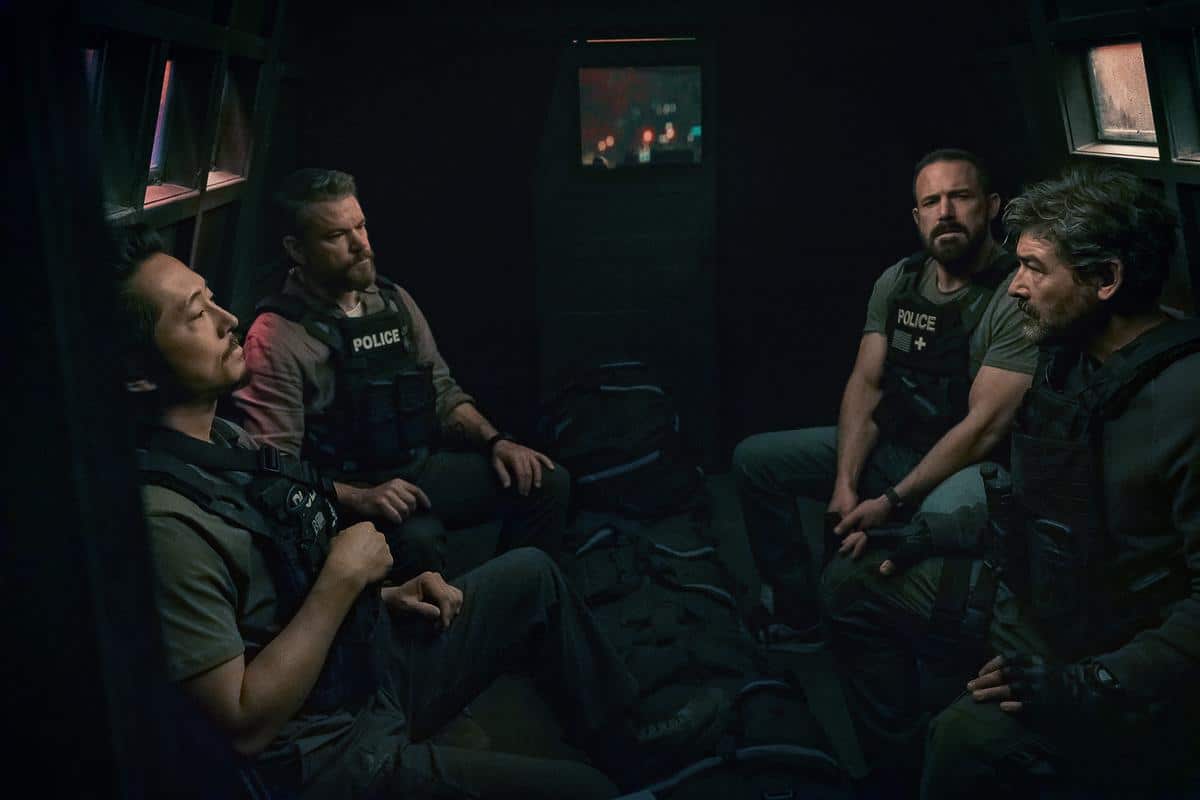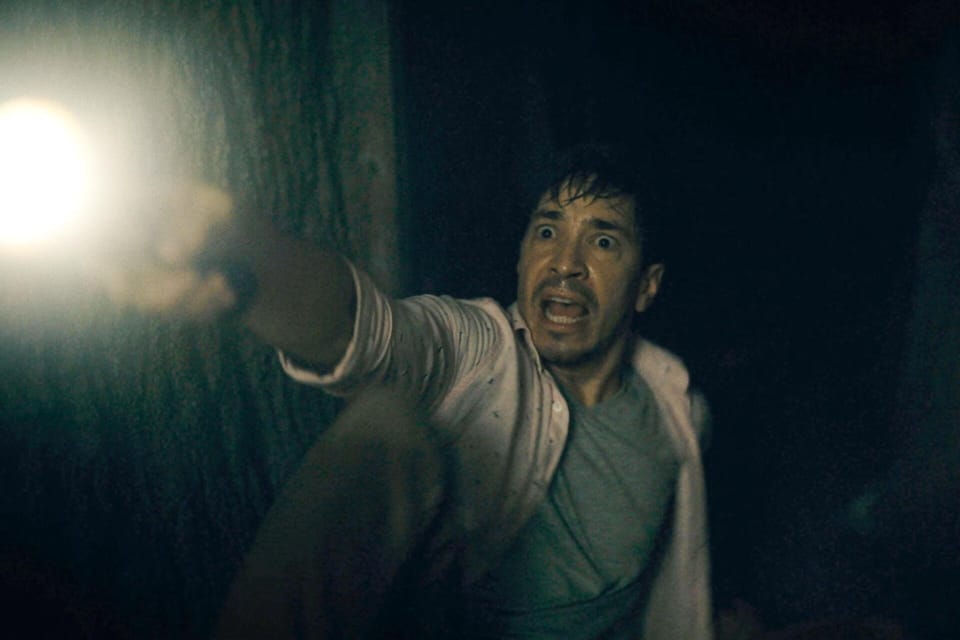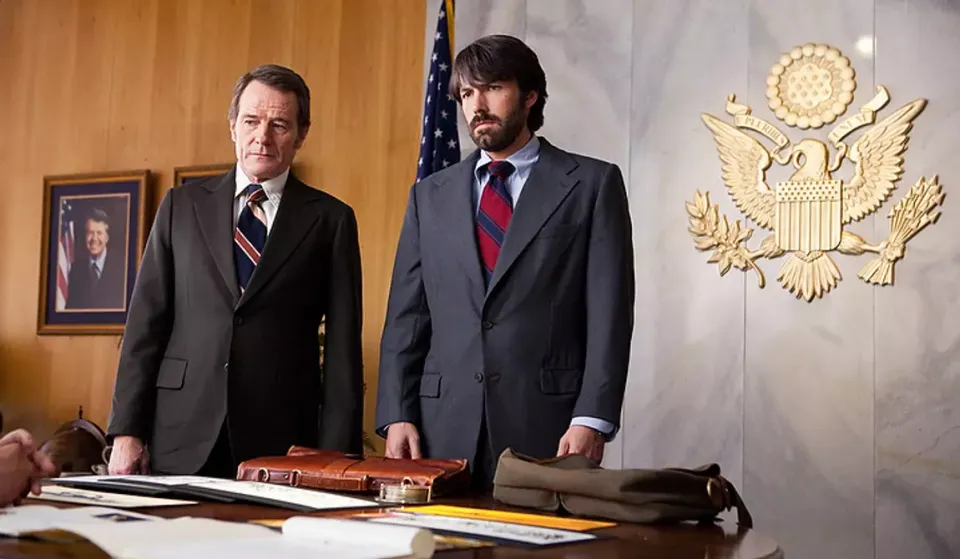It's Never Too Late To Do The Most Important Thing
One of the benefits of being a practitioner and not an academic is that the definitions I’ve sculpted over twenty years of teaching seek less to classify things and more to help us execute them properly.

The Story and Plot Weekly Email is published every Tuesday morning. Don't miss another one.
I want to talk about the definitions we use in the Story and Plot courses.
Why? Because I think even I can take them for granted. Yet, so many of the we're looking for are in them.
One of the benefits of being a practitioner and not an academic is that the definitions I’ve sculpted over twenty years of teaching seek less to classify things and more to help us execute them properly.
That is, identifying that screenplays tend to have first acts does not help us nearly as much as knowing the job of the first act in your story.
Last week, I helped a student with a pretty polished screenplay. I first read it many years ago, and it's one of my favorite projects I’ve assisted with as a teacher. It’s been optioned a couple of times now and has had some development since I last read it. It’s a solid read and has a lot going for it. I am not surprised there has been consistent interest from producers and talent.
Yet, clearly, something is missing. It’s an almost-screenplay. The skill it’s written with promises more than it ultimately delivers. The energy and emotion of the first half drift away in the second until it resolves itself, not with a feeling of emotional satisfaction but of a missed opportunity.
And again, and I want to emphasize this, this is a very good screenplay.
One of the first things I do in development is to discuss the story the writer is trying to tell. If they haven’t made that decision, I push them to do so. After all, this is their project, not mine.
My job is to help them tell their story to the best of their abilities, not tell them what I would have done if I had written it. That is the origin of almost all bad notes.
If you follow my writing on screenwriting, you likely know that I define story in my classes as:
STORY: The transformational journey of a human being.
This is one of the two main decisions we structure our screenplay around. And this is where we encountered our first hiccup in the script.
The hero had less of a transformation and more of a decision to make.
Certainly, a new and different choice in Act Three can be used to illustrate a transformation, but that wasn’t the case here. This was simply a matter of a protagonist getting more information, seeing something that we saw, and making the appropriate call.
In their mind, the writer framed the screenplay as a “story about grief.”
This may be true, but not by the definition we use. And we use our definition for a reason.
Because it helps guide us.
It tells us what to value more and what to value less. A story "about" grief is too open-ended to be of much use.
How do we build a structure around that? What is the beginning? What is the end? What’s in between?
But a story about the transformation that allows someone to finally heal and move on from their grief? We can structure three acts around that.
How do we know the difference? Again, we turn to our definitions.
The realization: The moment of internal recognition when the protagonist discovers that he or she has grown. Usually by a new value system taking over for the old.
The keys there are “grown” and “new value system.” If they simply get new information that changes their mind, they are not changing. The information is.
And because of this lack of change in the protagonists, the script spends the second act of the screenplay just kind of waiting for him to decide what he is going to decide.
But the second act isn’t for waiting:
Act 2 is a series of conflict and rising action that forces the protagonist to earn the physical, emotional, and spiritual tools that will allow them to answer The Dramatic Question to the audience’s satisfaction.
So the second act is there to transform them because who they are in act one is not capable of answering the dramatic question to the audience’s satisfaction (again, note the actual words: the definition does not say the answer must be “yes”, “no” or victorious, but simply evoke audience satisfaction.)
So, with no transformation, Act 2 has no emotional purpose. It relies purely on plot to keep us engaged, and that’s nearly impossible for mere mortals to get to work. Which is why Act 2 loses steam.
Once we figured this out, the solution to finally get this screenplay over the hump was clear: reframe the story more to our working definition.
The protagonist was simply too well formed in Act 1, and a compelling emotional and spiritual journey needed to be defined.
Usually, such a change would require a great deal of work, but the screenplay is well-written, and almost everything is already there to be tweaked and explored. Using Act 2 to forge a transformation gives it a whole new, more engaging life.
It also makes Act 3 much more emotionally satisfying as well.
These definitions are not random. They do not seek to simply classify. They have evolved over the years, getting more and more functional and precise. Each definition reveals more about the other story points as well. I often liken them to a crossword puzzle.
With each decision you make, each subsequent decision becomes easier and easier.
If the story of this screenplay had been more precisely defined, Act 2 would have been better utilized. If Act 2 had been better utilized, the realization would have been clearer. And so on.
This is why we learn these fundamentals. First, to give us consistency in our work. Second, to diagnose what isn't working so we can fix it.
And as the title suggests, it’s never too late to do the most fundamental thing.
And that is, to define the story,
I’ve done it myself many times. I’ve written entire screenplays and wondered why they weren’t working, only to go back to a singular fundamental question and fix the whole damn thing (and sell it.)
The WHY matters. The DEFINITIONS matter.
If you've taken Mastering Structure with me before, this might be a great time to whip out that glossary sheet and reread it!
I might just do it myself.
The Story and Plot Weekly Email is published every Tuesday morning. Don't miss another one.
When you're ready, these are ways I can help you:
WORK WITH ME 1:1
1-on-1 Coaching | Screenplay Consultation
TAKE A COURSE
Mastering Structure | Idea To Outline




